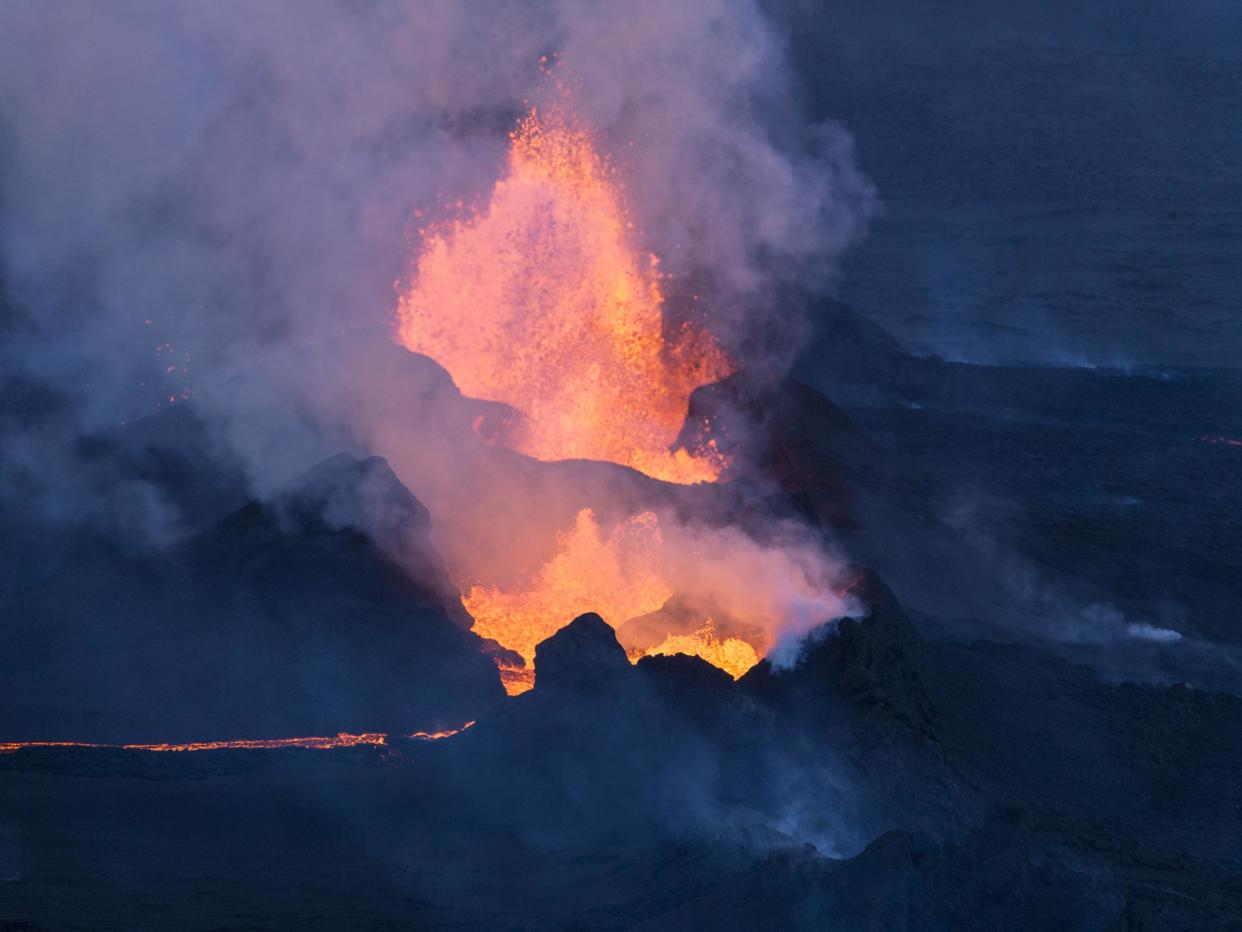Enormous volcanic eruption may have convinced Vikings in Iceland to become Christians, study says

A devastating volcanic eruption that struck early Viking settlers in Iceland may have been viewed as an act of God and driven their conversion to Christianity, according to a new study.
Iceland is a nation built on volcanoes, and the 10th century Eldgjá lava flood is the island’s largest volcanic eruption in recorded history.
By determining the precise date of this catastrophe, a team of researchers has unravelled its lasting impacts on climate and society in Iceland.
They found that Iceland’s most celebrated medieval poem, Voluspá, includes a description of the eruption, and suggests memories of it were used to encourage conversion to Christianity in the region.
Ice core records from Greenland were used by the scientists to arrive at an accurate prediction of the date of the Eldgjá eruption, as they preserved the volcanic fallout.
The researchers concluded that the eruption began around the spring of 939 AD and continued for over a year afterwards.
“This places the eruption squarely within the experience of the first two or three generations of Iceland’s settlers,” said Dr Clive Oppenheimer, a volcanologist at the University of Cambridge who led the study.
“Some of the first wave of migrants to Iceland, brought over as children, may well have witnessed the eruption.”
The impact of Eldgjá would have been significant. Its eruption was a type known as a lava flood, a prolonged event in which huge areas of land are covered in lava and the air is filled with sulphurous gases.
“The effects of the Eldgjá eruption must have been devastating for the young colony on Iceland – very likely, land was abandoned and famine severe,” said study co-author Professor Andy Orchard, a specialist in Old Norse literature at the University of Oxford.
While there are no surviving texts from the time of the eruption, the researchers noted that Voluspá – thought to be written in around 961 AD – includes descriptions of the eruption as it tells of the fall of Iceland’s pagan gods and the coming of the Christian God.
The poem describes how “the sun starts to turn black, land sinks into sea” and describes the cold summers that would have followed an eruption the size of Eldgjá.
“Most striking is the almost eyewitness style in which the eruption is depicted in Voluspá,” said Dr Oppenheimer.
“The poem’s interpretation as a prophecy of the end of the pagan gods and their replacement by the one, singular god, suggests that memories of this terrible volcanic eruption were purposefully provoked to stimulate the Christianisation of Iceland.”
The research was published in the journal Climatic Change.

 Yahoo News
Yahoo News 
